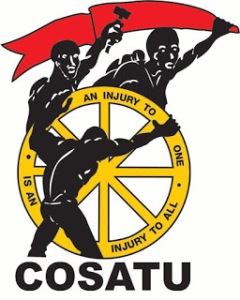This piece was originally published on The Conversation at https://theconversation.com/a-big-election-win-for-south-africas-anc-but-results-suggest-future-challenges-26418
On the surface, 2014 appears to represent “business as usual” for the landscape of South Africa’s electoral politics. The African National Congress (ANC) has secured a fifth straight victory in the latest national election. The ANC polled 62.1% of the total valid votes cast. This represents only a slight fall of 3.8% from its overall performance in the previous poll in 2009.
Despite the good result for President Jacob Zuma’s ruling party, deeper analysis, combined with some interesting developments in recent months, suggests that in fact the ANC faces a number of future challenges.
Internal dissent
The ANC’s most recent victory has been achieved despite the deepening crisis of poverty, unemployment and inequality. Its election campaign, summed up in the slogan, “we have a good story to tell”, focused on its credentials as the party that overcame apartheid. There is an increasing tendency for the ANC to focus on past achievements to secure its contemporary legitimacy.
Nevertheless, a few significant figures within the ANC, including stalwart of the liberation struggle and former government minister Ronnie Kasrils, launched a “Vote No” campaign in the run-up to the election. Their dissatisfaction with the performance of the ANC in government led them to urge South Africans to either vote for one of the smaller parties or spoil their ballot paper by writing the message “no” on it.
The precise impact of this campaign is hard to measure. Only 1.4% of votes were spoilt (intentionally or otherwise) and the majority of smaller parties failed to secure even a single representative in the National Assembly. However, it is symptomatic of a rising tide of criticism of the ANC, reflected in both popular protest and discontent within parts of the labour movement.
Voter registration and turnout
Turnout of the electorate is one area that demonstrates the more partial nature of support for the ruling party. The official figure this year was 73.4%, down from 77.3% in 2009. However, this only represents the proportion of the 25.4 million South Africans who registered to vote in the first place.
Based on recent population data for mid-2013 it is estimated that the current voting age population is approximately 32.6 million. The 11.4 million votes for the ANC in the national ballot therefore only represents 35% of the voting age population. Moreover, registration levels are particularly low amongst younger voters. Only 60% of 20-somethings were registered, according to the Electoral Commission, compared to 90% of those over the age of 30. This disengagement from the electoral process may become even more of a challenge in the future.
Opposition parties are making inroads
The ANC’s support also varies on a regional basis. In 2009, its share of the vote fell in every single province except KwaZulu-Natal, Zuma’s home province.
This time the main opposition party, the Democratic Alliance (DA), achieved a stronger showing nationally and has repeated its 2009 success as the leading party in the Western Cape. The DA has also made progress in Gauteng (South Africa’s most populous province), where the ANC’s share fell significantly from 64% in 2009 to 55% in 2014.
One noticeable result in 2014 has been the relatively strong showing (6.4% of the national vote) of the recently formed Economic Freedom Fighters (EFF). Led by former ANC Youth League leader, Julius Malema, their populist brand of black African nationalism, couched in left-wing rhetoric, has benefited from the continued absence of a more genuine left-wing alternative to the ANC. The EFF’s focus on the nationalisation of strategic sectors of the economy and land redistribution without compensation clearly has some resonance with sections of the poor black majority.
2009: room for a party of the left?
The ANC and DA are both committed to the broadly neoliberal, National Development Plan, as the solution to the deepening socio-economic crisis in the country. What are the prospects for a viable political alternative?
During recent months, tensions within South Africa’s largest trade union confederation, the Congress of South African Trade Unions (COSATU), have reached breaking point. As a result, it is becoming clear that the potential formation of a left-wing political movement is on the horizon.
COSATU’s largest affiliated trade union, the National Union of Metalworkers of South Africa (NUMSA), withdrew its electoral support for the ANC in December 2013. Since then it has begun the process of building a new political movement. The intention is to develop links beyond the organised working class by engaging with a number of the “new social movements” that have emerged since the late 1990s. Resistance in South Africa in the form of political protest has been on the rise and the very real challenge for NUMSA and others will be how to co-ordinate these actions, which at present remain localised and largely unconnected.
Predictions of the ANC’s imminent electoral decline made prior to the 2014 elections have proven to be wide of the mark. There are a number of reasons, however, to suggest that things may look very different when South Africa holds its next national poll in 2019.
